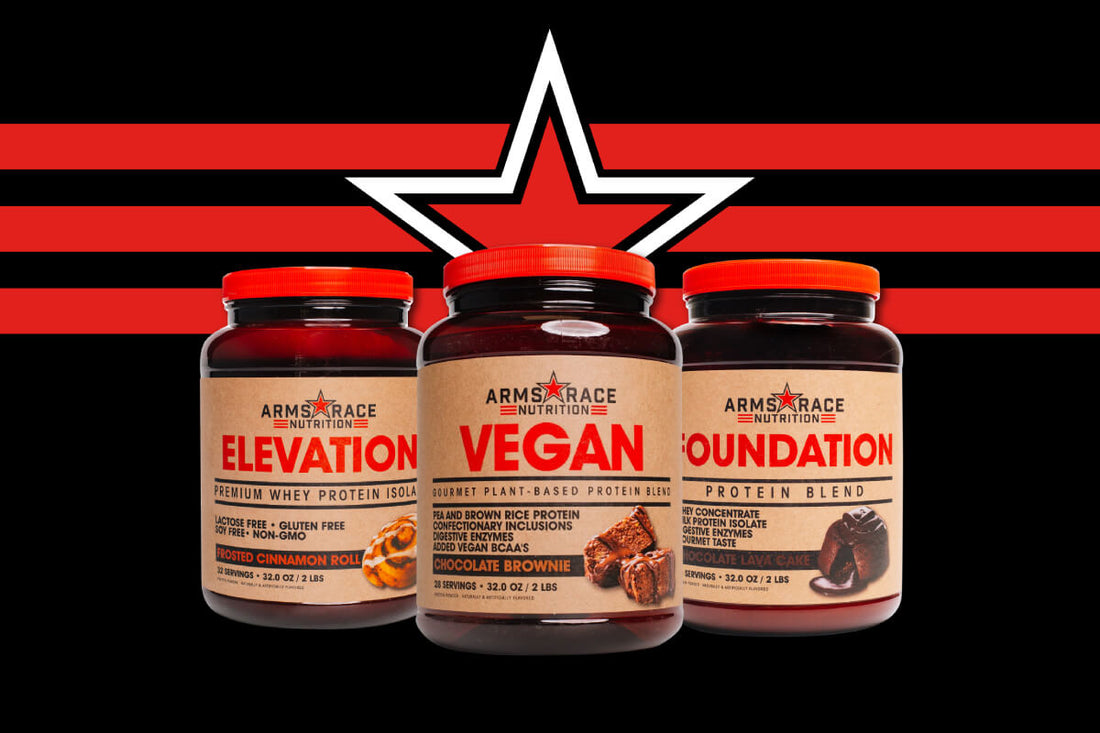
Plant-Based Protein vs. Whey Protein: Which Is Better?
In the realm of nutrition and fitness, the debate surrounding whey protein vs. plant protein has been gaining momentum in recent years. With an increasing number of people adopting plant-based diets and looking for vegan alternatives to traditional animal-derived products, the spotlight has turned to plant-based proteins as a viable option.
However, whey protein, a staple in the fitness world, still holds its ground as a trusted source of high-quality protein. This clash of nutritional titans underscores the evolving landscape of dietary choices and the pivotal role protein plays in the pursuit of a healthy lifestyle. To navigate this terrain effectively, it is essential to delve deeper into the characteristics and potential benefits of these two protein sources.
Understanding the Basics: Whey Protein vs. Plant Protein
Before we jump into the comparison, it's essential to understand what whey protein powder and plant-based protein mean. Then, explore their differences and benefits to make informed dietary choices. Whether you're a fitness enthusiast, vegan, or simply health-conscious, this knowledge is key to achieving your dietary and fitness goals.
Whey Protein:
Whey protein is a full-fledged protein sourced from milk in the course of cheese production. It contains all essential amino acids, making it an excellent source of protein for muscle growth and repair. A measurable gram of whey powder is known for its rapid digestion and absorption, making it a popular choice among athletes and fitness enthusiasts.
Plant Protein:
Plant protein, on the other hand, is sourced from different plant sources or plant-based foods, such as peas, rice, soy, hemp, and more. Unlike whey protein, plant-based protein powders might not always contain all essential amino acids, but with a balanced diet, it's still possible to meet your protein needs. Plant protein powders are renowned for their sustainability, as they have a lower environmental impact compared to animal-based protein sources. Brown rice protein is an example of a plant-based powerhouse, delivering protein-packed goodness with a natural and nutritious edge.
Comparison Chart: Plant-Based Protein vs Whey Protein
Distinguishing between plant-based protein and whey protein is vital for dietary decisions. This comparison chart provides a concise yet comprehensive overview of their key differences between whey and plant protein, helping individuals choose the protein source that aligns with their nutritional goals and lifestyle choices.
Nutrition:
When it comes to protein content, both whey and plant-based protein powders offer a substantial amount. However, the key difference lies in the quality and variety of nutrition supplements they provide.
Whey protein concentrate is a complete protein, meaning it contains all nine essential amino acids your body needs to function correctly. This renders it a prime option for fostering muscle development and facilitating recovery. Additionally, whey protein tends to be rich in branched-chain amino acids (BCAAs) like leucine, which plays a crucial role in muscle protein synthesis.
Plant-based protein powders, while not always complete proteins on their own, can be combined to create a complete amino acid profile. For example, pea protein is low in methionine but high in lysine, while rice protein is the opposite. By mixing these protein sources, you can achieve a complete amino acid profile. Plant-based protein supplements also offer various health benefits due to their phytonutrient content, such as antioxidants and fiber, which are often absent in whey protein.
Digestibility and Food Sensitivities
Whey protein supplements have an edge in terms of digestibility. It's rapidly absorbed by the body, making it an excellent choice for post-workout recovery when your muscles need protein quickly. This fast absorption rate is attributed to its high leucine content, which triggers muscle protein synthesis more effectively.
Plant-based protein powders, although slightly slower to digest, are still suitable for muscle recovery and growth. They might not provide the same rapid spike in amino acids as whey, but they offer a steady release of nutrients over time. Some individuals also find plant-based proteins easier on the digestive system, as they are lactose-free and may cause fewer digestive discomforts.
Environmental Impact:
The environmental impact of protein sources is an essential consideration, especially in today's eco-conscious world. Whey protein production, being animal-based, has a higher carbon footprint compared to plant-based protein sources. It requires significant amounts of water and energy, along with the release of greenhouse gasses from livestock farming.
On the other hand, plant-based protein production is generally more sustainable. Plants require fewer resources to grow, emit fewer greenhouse gasses, and have a lower impact on land and water usage. For those looking to reduce their carbon footprint, plant-based protein can help to give a more environmentally friendly choice.
Personal Preferences:
Personal preferences play a significant role in choosing between whey and plant-based protein. Some individuals may have dietary restrictions, such as lactose intolerance or allergies, that make whey protein unsuitable for them. In such cases, plant-based protein becomes a necessary and practical alternative.
Moreover, ethical and moral considerations can also influence one's choice. Those who follow a vegan or vegetarian lifestyle may prefer vegan protein powder to align with their values and principles.
Taste and Texture:
Taste and texture can be subjective and vary depending on the brand and flavor of protein powder. Some people find whey protein to have a creamier texture and a more familiar taste, similar to traditional dairy products. Plant-based protein powders come in a wide range of flavors, with some being more earthy or gritty in texture. Experimenting with various brands and flavors can aid you in discovering the perfect match for your palate.
Whey Protein vs. Plant Protein - The Verdict
So, which protein powder is better, whey or plant-based? The answer depends on your individual needs, preferences, and priorities.
If you're looking for a protein source with all essential amino acids and rapid absorption for muscle growth and recovery, whey protein might be the better choice for you. However, if you're a vegan, vegetarian, or environmentally conscious consumer, plant-based protein is the more sustainable and ethical option. It also offers a range of health benefits due to its phytonutrient content.
Ultimately, there's no one-size-fits-all answer to the whey protein vs. plant protein debate. The best protein powder for you is the one that aligns with your dietary goals, lifestyle choices, and taste preferences. Discover excellence in nutrition with Arms Race Nutrition! Explore our premium range of plant protein and whey protein supplements to fuel your fitness journey. Whether you're a plant-based enthusiast or a traditional whey protein lover, we have the ideal products to support your health and fitness goals.
In the end, both whey vs. plant protein have their unique strengths and can be valuable additions to a well-rounded diet. So, embrace the variety and make the choice that helps you achieve your health and fitness goals while staying true to your values.

